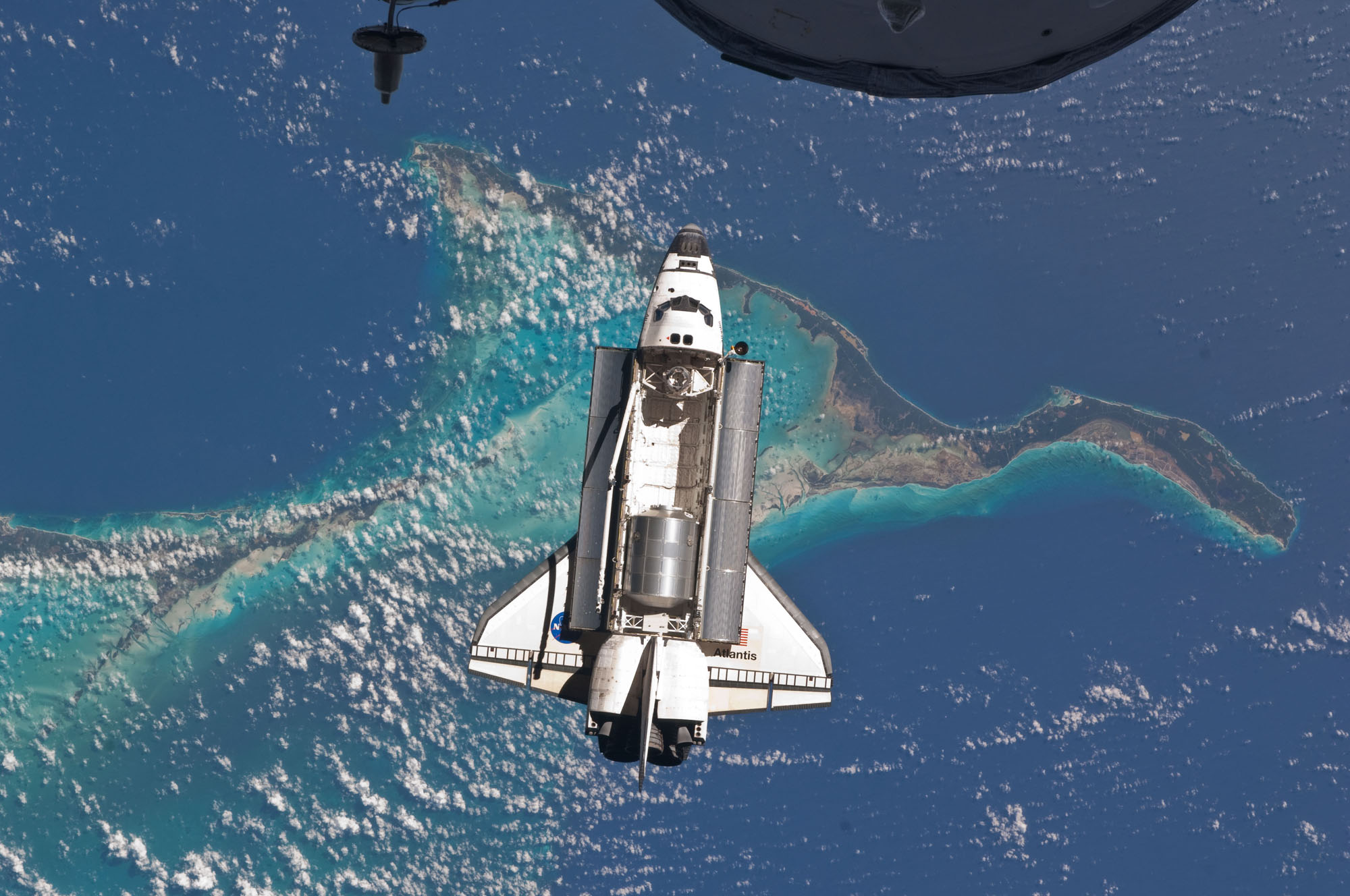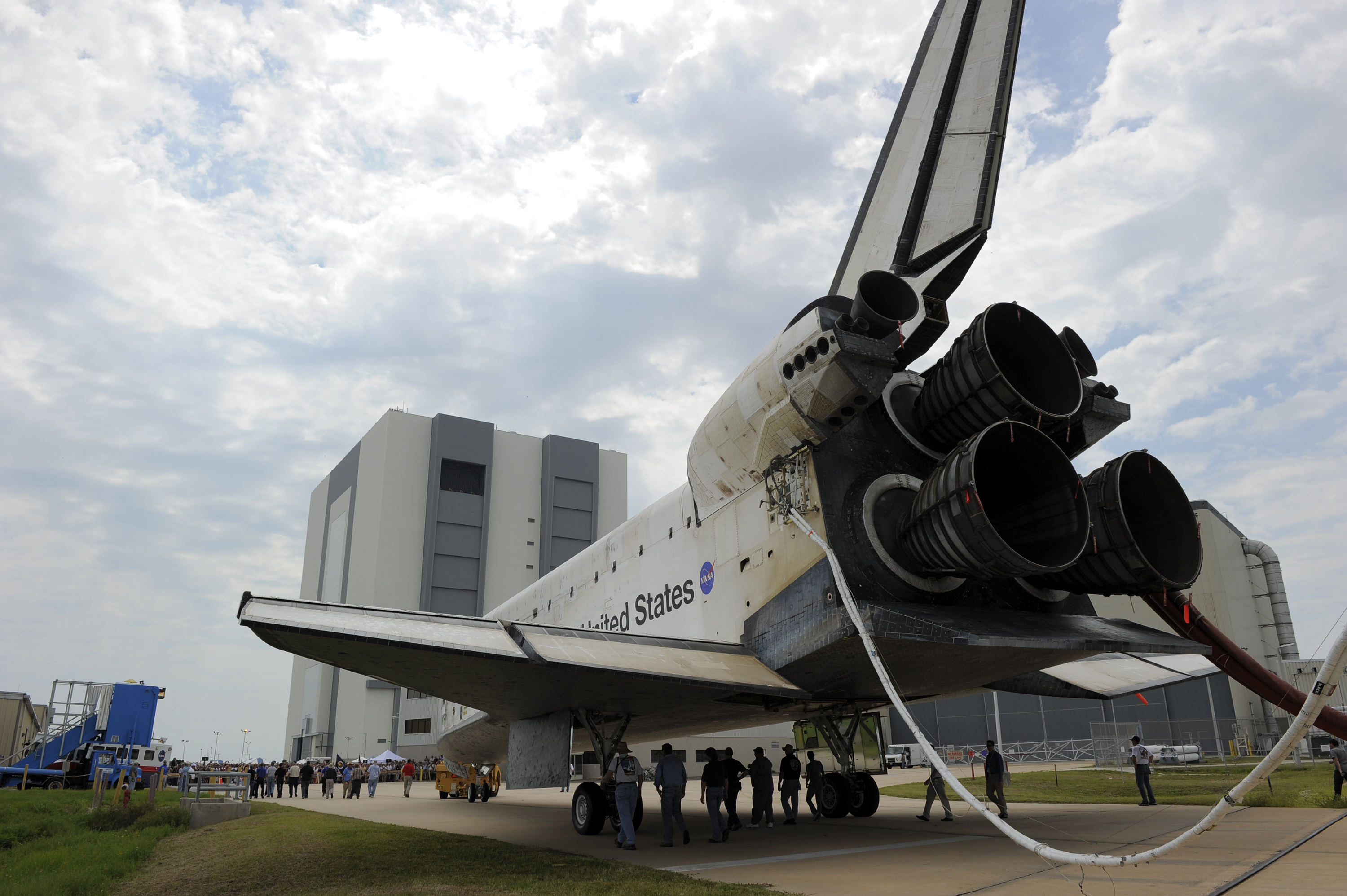Let the Space Shuttle Rest in Peace, Experts Tell Congress

The space shuttle isn't going to fly again, no matter how often supporters of the iconic winged vehicle trot out the possibility, a panel told lawmakers Wednesday (Oct. 12) on Capitol Hill.
Ever since NASA grounded its shuttle fleet in July, some prominent voices have been calling for the venerable orbiters to be pressed back into service. But that's simply not going to happen, panelists said, so continuing to pound the drum won't do any good.
"This would have been a great research question three or perhaps four years ago," Joseph Dyer, chairman of NASA's Aerospace Safety Advisory Panel, told members of the House of Representatives' Committee on Science, Space and Technology Wednesday. "But it's not a good question, or a practical question, at this time." [NASA's Space Shuttle Program In Pictures: A Tribute]
Gap in American spaceflight capabilities
The administration of President George W. Bush decided back in 2004 to end the shuttle program. And this finally came to pass in July, when the orbiter Atlantis wrapped up its STS-135 mission and touched down for the last time.
With the shuttles retired, the United States is now completely dependent on Russian Soyuz vehicles to ferry American astronauts to and from the International Space Station. NASA wants private spaceflight companies to take over this taxi service eventually, but that likely won't happen until 2015 at the earliest, officials have said.
A number of observers seem unwilling to accept this four- or five-year gap in American human spaceflight capabilities. One possible solution they offer is bringing the shuttle back.
Breaking space news, the latest updates on rocket launches, skywatching events and more!
For example, former Apollo astronaut Gene Cernan suggested as much last month in his testimony before this same House Science Committee, saying the nation should "get the shuttle out of the garage."
And at the same September hearing, Neil Armstrong, the first human to set foot on the moon, maintained that proposals to continue flying the shuttle under commercial contract "should be carefully evaluated prior to allowing them [the shuttles] to be rendered 'not flightworthy' and their associated ground facilities to be destroyed."
Shuttles are museum-bound
House Science Committee member Lamar Smith (R-Texas) raised the possibility of reviving the shuttles again Wednesday, but Dyer shot it down.
And fellow panelist Thomas Stafford, chairman of the International Space Station Advisory Committee, was similarly bearish on the prospect, citing the time it would take to ramp up the shuttle's infrastructure once again.
For example, each space shuttle launch requires a huge expendable orange fuel tank to be built. There are no such tanks left, and restarting production of the tanks at NASA's Michoud Assembly Facility in Louisiana would be difficult.
"One of the long poles in the tent is that external tank," Stafford said. "And that would probably take about two years to start up."
The current condition of the orbiters also makes it unlikely that they'll ever fly again. NASA technicians have been prepping Atlantis and its sister shuttles Discovery and Endeavour for their retirement roles as museum showpieces ever since they touched down. Already, some components of the orbiters that may harbor toxic residues, such as their main engines, have been removed. Other hardware has been taken off for potential use on future spacecraft.
Atlantis will head to the Kennedy Space Center Visitor Complex in Florida, Endeavour is bound for the California Science Center in Los Angeles and Discovery will end up at the Smithsonian National Air and Space Museum in Washington, D.C.
And NASA has already handed Endeavour's keys over to the California Science Center, so even the space agency is ready to say its goodbyes.
You can follow SPACE.com senior writer Mike Wall on Twitter: @michaeldwall. Follow SPACE.com for the latest in space science and exploration news on Twitter @Spacedotcom and on Facebook.

Michael Wall is a Senior Space Writer with Space.com and joined the team in 2010. He primarily covers exoplanets, spaceflight and military space, but has been known to dabble in the space art beat. His book about the search for alien life, "Out There," was published on Nov. 13, 2018. Before becoming a science writer, Michael worked as a herpetologist and wildlife biologist. He has a Ph.D. in evolutionary biology from the University of Sydney, Australia, a bachelor's degree from the University of Arizona, and a graduate certificate in science writing from the University of California, Santa Cruz. To find out what his latest project is, you can follow Michael on Twitter.

